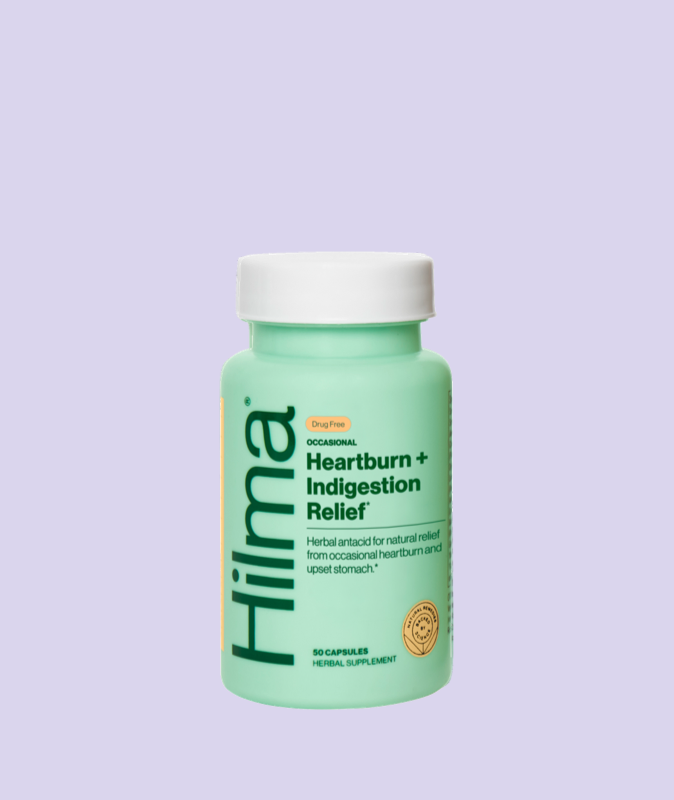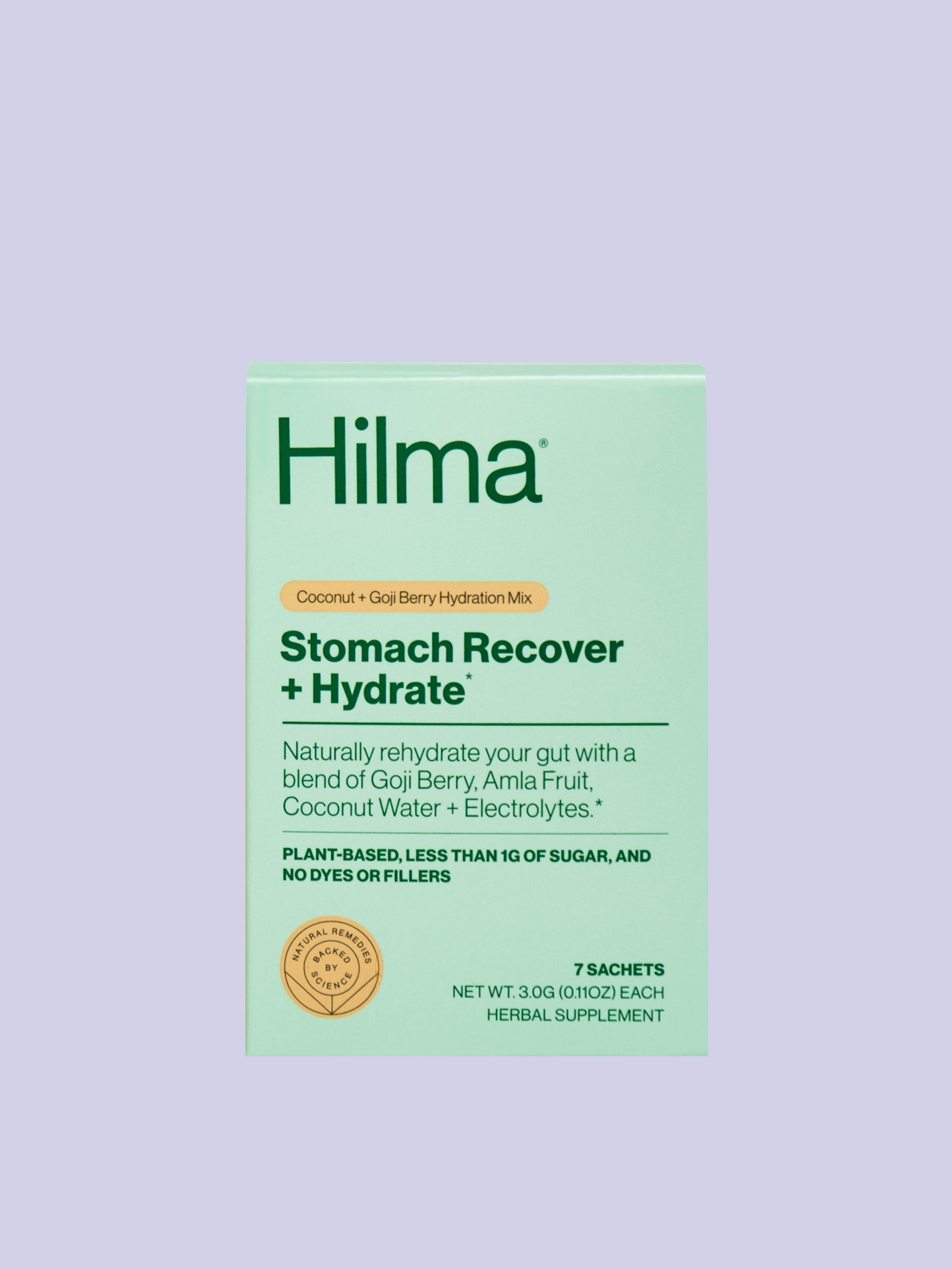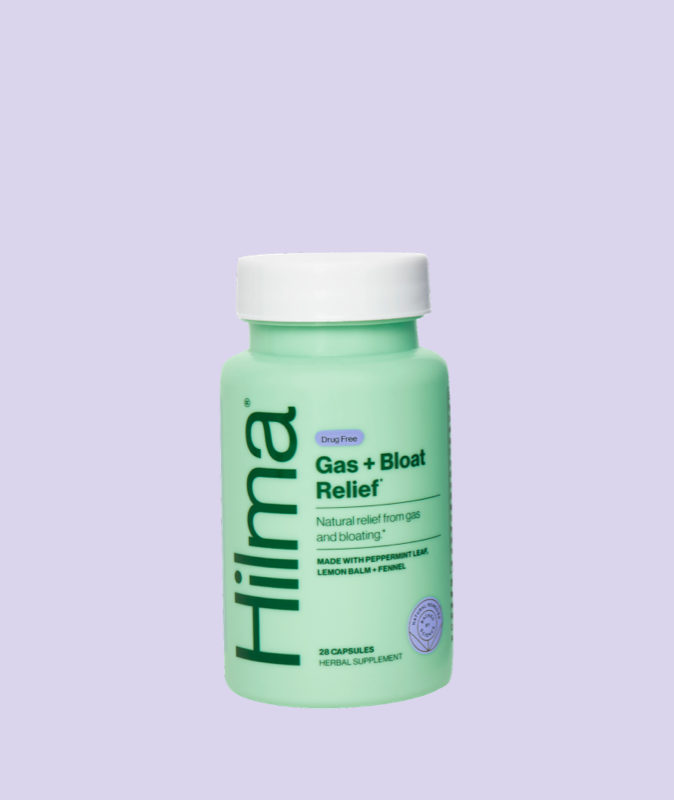
Heartburn and indigestion are often confused for each other because they can both be present at the same time. However, heartburn is a specific symptom related to the regurgitation of stomach acid into the esophagus, while indigestion refers to the broader process of a reduction in digestion and absorption of nutrients from foods.
Heartburn can cause the characteristic burning sensation in the chest, often behind the breastbone. Indigestion can occur in digestive issues and conditions, including irritable bowel syndrome, celiac disease, and lactose intolerance. Symptoms of indigestion extend beyond reflux and include feeling uncomfortably full of heavy (bloating), increased belching, nausea, and constipation or diarrhea.
Why Does It Happen?
Heartburn can occur when certain foods and lifestyle factors trigger an increase in acid production or acid movement into the esophagus. For example, lying down immediately after a meal can induce heartburn because stomach acid physically can slide up into the esophagus.
Other foods and beverages, such as spicy foods and alcohol, can trigger an abrupt rise in acid. Indigestion is a process that can begin from insufficient chewing with enzymes in the mouth to molecules that an individual may have a sensitivity or allergy to, such as gluten in celiac disease, in the small intestine.
How Do You Manage/Treat It?
Heartburn management begins by avoiding trigger foods, cigarette smoking, and aggravating positions. Demulcent herbs, such as DGL licorice and marshmallow root, can help soothe and protect irritated tissue, reducing reflux. Some individuals may require a prescription medication, such as a protein-pump inhibitor or H2 blocker, which reduces stomach acid production.
Indigestion may require a greater evaluation to determine the cause. For some, indigestion can be simply relieved with bitters before a meal to add additional food breakdown support in the stomach, while others may require support from a gastroenterologist for treatment of chronic conditions, such as Ulcerative Colitis.
What 5 Foods Can Help Prevent or Manage Symptoms?
Now that we've explored the intricacies of heartburn and indigestion, let's dive into how certain foods can help manage and even prevent these uncomfortable symptoms. Emphasizing a diet that mitigates acid production and supports digestion can be a game changer.
Here are foods that not only neutralize stomach acid but also promote overall digestive health:
1. Low-Acid Fruits
While citrus fruits often aggravate heartburn, non-citrus fruits like watermelon and melons generally have a lower acid content, making them excellent choices for those looking to soothe symptoms of acid reflux. Their high water content helps to dilute and weaken stomach acid, providing a cooling effect on the gastrointestinal tract.
2. High-Fiber Foods
Incorporating high-fiber foods such as whole grains, leafy greens, and whole-grain bread into your diet can significantly improve digestive health. Fiber helps regulate the digestive system, reducing the chances of constipation and the pressure it can place on the lower esophageal sphincter (LES), which in turn may trigger reflux symptoms.
3. Lean Proteins
Opting for lean proteins such as chicken, turkey, and fish can be beneficial. These foods are low in fat content, which is crucial because high-fat foods can trigger heartburn by relaxing the LES and slowing stomach emptying. Lean proteins help maintain a feeling of fullness without the adverse effects associated with fatty foods.
4. Root and Green Vegetables
Vegetables like green beans, ginger, and avocados provide essential nutrients with minimal inflammatory fat and acid, which can help manage heartburn symptoms. Ginger tea is particularly known for its gastrointestinal soothing properties, while avocados contain healthy fats that promote good digestion without triggering heartburn.
5. Whole Grains and Seeds
Quinoa and brown rice are excellent choices for those suffering from acid reflux or GERD. These whole grains are not only packed with fiber but also have an alkaline effect on the stomach’s contents, which can help balance stomach acidity. Similarly, incorporating seeds like flax or chia, which boast pain-reducing properties, can help reduce irritation and tension in the digestive tract.
Tips for Managing Heartburn and Enhancing Digestive Health
Adopting a diet that focuses on foods that alleviate heartburn is a great first step, but combining this approach with practical lifestyle changes can further enhance your digestive health.
Here are some effective strategies to keep in mind:
Avoid Eating Before Bedtime
To prevent the discomfort of heartburn symptoms, it's advisable to stop eating at least three hours before going to bed. This allows your stomach to digest the food somewhat before you lie down, reducing the likelihood of acid reflux.
Pro Tip: If you often experience discomfort at night, consider our Sleep Support supplement to help you relax and improve the quality of your sleep, making this new routine more beneficial.
Portion Control
Eating smaller meals more frequently can significantly reduce heartburn triggers. Large meals can put pressure on the lower esophageal sphincter (LES), making it more likely for acid to rise back into the esophagus.
To support digestion throughout the day without overloading your stomach, you might try incorporating our Fiber Gummy to support digestive regularity and fullness, helping you feel satisfied with smaller portions.
Elevate Your Head While Sleeping
If heartburn often strikes at night, try elevating your head while you sleep. Using a pillow to lift your head and upper body can prevent stomach acid from rising into the esophagus. This simple adjustment can make a significant difference in reducing nighttime heartburn symptoms.
Maintain a Healthy Weight
Excess weight can increase abdominal pressure, which in turn can cause heartburn. Engaging in regular physical activity and managing your weight can have a positive impact on controlling acid reflux.
Pro Tip: Our Daily Movement Duo can be a supportive addition to your regimen, promoting regularity and aiding digestive health, which is beneficial for maintaining a healthy weight.
Choose the Right Beverages
Certain drinks like alcohol, caffeine, and carbonated beverages can trigger heartburn. Opting for non-citrus juices, herbal teas, and plenty of water can help keep symptoms at bay. Ginger tea is especially beneficial due to its natural soothing properties.
Practice Mindful Eating
Taking the time to eat slowly and chew thoroughly can significantly improve how your stomach processes food. This reduces the workload on your digestive system and minimizes the risk of acid reflux. Mindful eating also helps you tune into your body’s satiety cues, preventing overeating, which is a common trigger for heartburn.
Avoid Tight Clothing
Believe it or not, wearing clothes that fit tightly around your waist can increase abdominal pressure and push stomach contents back up into the esophagus. Opting for looser, more comfortable clothing can help alleviate this pressure and keep heartburn episodes in check.
Stay Upright After Meals
Resist the urge to lie down immediately after eating. Staying upright for at least an hour after meals helps gravity keep your stomach contents down and prevents the reflux of acid into the esophagus. This can be especially helpful after larger meals or if you’ve eaten something that could potentially trigger heartburn.
Pro Tip: If you find that certain meals still leave you feeling a bit uneasy, our Gentle Bowel Movement Support can be a helpful addition to your post-meal routine. It’s designed to soothe occasional constipation and support regularity without harsh effects.
Navigating heartburn and indigestion involves a combination of smart dietary choices and lifestyle adjustments. At Hilma, we're dedicated to supporting your journey toward digestive health with natural, science-backed solutions.
Try a Daily Dose of Probiotics
Adding probiotics to your diet can significantly enhance gut health, helping balance your digestive system and reduce acid reflux. Our Daily Pre + Probiotic + Herbs offer a blend of prebiotics, probiotics, and soothing digestive herbs designed to support a healthy microbiome and keep your digestive processes smooth and comfortable.
Remember, small changes can lead to big relief. By integrating some of these tips and foods into your routine, you're not just soothing symptoms but also investing in a healthier, more vibrant life. If symptoms persist, consider consulting with a healthcare professional to explore further options tailored to your needs.
Embrace these practices, and let your digestive health flourish!
This information is for educational purposes only and should not be taken as medical advice. Please consult a physician before treating any disorder.
Sources:
The Best and Worst Foods for Acid Reflux – What to Eat and Avoid | University Hospitals
How central obesity influences intra-abdominal pressure | PMC
Acid Reflux Diet: What Is It, Foods to Eat, Foods to Avoid, and More | Osmosis





